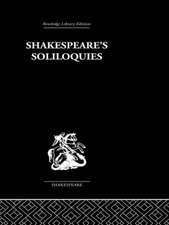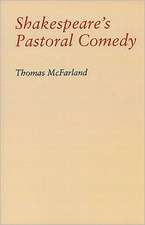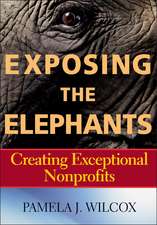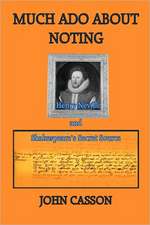All's Well That Ends Well
Autor William Shakespeareen Limba Engleză Paperback – 22 mai 2018
| Toate formatele și edițiile | Preț | Express |
|---|---|---|
| Paperback (43) | 39.39 lei 3-5 săpt. | +20.97 lei 7-13 zile |
| Penguin Random House Group – 31 dec 2000 | 39.39 lei 3-5 săpt. | +20.97 lei 7-13 zile |
| CREATESPACE – | 40.05 lei 3-5 săpt. | |
| CREATESPACE – | 41.71 lei 3-5 săpt. | |
| CREATESPACE – | 43.56 lei 3-5 săpt. | |
| CREATESPACE – | 43.74 lei 3-5 săpt. | |
| Mint Editions – 11 ian 2022 | 44.00 lei 3-5 săpt. | |
| – | 46.65 lei 3-5 săpt. | |
| CreateSpace Independent Publishing Platform – | 48.05 lei 3-5 săpt. | |
| CREATESPACE – | 48.05 lei 3-5 săpt. | |
| Oxford University Press – 14 aug 2008 | 49.40 lei 10-16 zile | +19.77 lei 7-13 zile |
| CREATESPACE – | 49.68 lei 3-5 săpt. | |
| Penguin Books – 29 iul 2015 | 57.19 lei 3-5 săpt. | +8.32 lei 7-13 zile |
| – | 57.53 lei 3-5 săpt. | |
| Simon&Schuster – 3 noi 2020 | 63.66 lei 3-5 săpt. | +20.68 lei 7-13 zile |
| Hackett Publishing Company – 10 apr 2012 | 66.32 lei 3-5 săpt. | |
| CreateSpace Independent Publishing Platform – | 69.21 lei 3-5 săpt. | |
| Cambridge University Press – 18 ian 2004 | 75.01 lei 3-5 săpt. | |
| Modern Library – 31 aug 2011 | 75.46 lei 3-5 săpt. | |
| CREATESPACE – | 82.72 lei 3-5 săpt. | |
| – | 84.91 lei 3-5 săpt. | |
| CREATESPACE – | 85.00 lei 3-5 săpt. | |
| Bloomsbury Publishing – 28 noi 2018 | 91.97 lei 3-5 săpt. | +35.70 lei 7-13 zile |
| CREATESPACE – | 95.57 lei 3-5 săpt. | |
| – | 99.26 lei 3-5 săpt. | |
| NICK HERN BOOKS – 31 aug 2004 | 184.98 lei 3-5 săpt. | |
| – | 52.89 lei 6-8 săpt. | |
| – | 59.01 lei 6-8 săpt. | |
| Digireads.com – 16 iun 2019 | 59.23 lei 6-8 săpt. | |
| – | 61.51 lei 6-8 săpt. | |
| – | 68.12 lei 6-8 săpt. | |
| BLURB INC – 24 feb 2019 | 88.41 lei 17-23 zile | |
| Akasha Classics – 11 feb 2010 | 91.62 lei 6-8 săpt. | |
| Read & Co. Classics – 22 mai 2018 | 97.14 lei 6-8 săpt. | |
| LIGHTNING SOURCE INC – 26 mai 2018 | 100.80 lei 17-23 zile | |
| Blurb – 21 aug 2022 | 105.77 lei 6-8 săpt. | |
| Devoted Publishing – 19 noi 2016 | 112.63 lei 6-8 săpt. | |
| LIGHTNING SOURCE INC – 24 oct 2018 | 115.57 lei 17-23 zile | |
| Sovereign – 25 aug 2018 | 125.96 lei 6-8 săpt. | |
| TREDITION CLASSICS – 30 noi 2012 | 145.30 lei 6-8 săpt. | |
| TREDITION CLASSICS – 30 noi 2012 | 146.29 lei 6-8 săpt. | |
| TREDITION CLASSICS – 30 noi 2012 | 146.29 lei 6-8 săpt. | |
| TREDITION CLASSICS – 30 noi 2012 | 183.07 lei 6-8 săpt. | |
| Cambridge University Press – 19 iul 2009 | 279.57 lei 6-8 săpt. | |
| Hardback (8) | 71.93 lei 3-5 săpt. | |
| Mint Editions – 11 ian 2022 | 71.93 lei 3-5 săpt. | |
| Bloomsbury Publishing – 28 noi 2018 | 539.99 lei 3-5 săpt. | +115.26 lei 7-13 zile |
| Akasha Classics – 11 feb 2010 | 173.96 lei 6-8 săpt. | |
| TREDITION CLASSICS – 30 noi 2012 | 254.91 lei 6-8 săpt. | |
| TREDITION CLASSICS – 30 noi 2012 | 255.68 lei 6-8 săpt. | |
| TREDITION CLASSICS – 30 noi 2012 | 255.68 lei 6-8 săpt. | |
| TREDITION CLASSICS – 30 noi 2012 | 257.21 lei 6-8 săpt. | |
| Cambridge University Press – 24 sep 2003 | 471.84 lei 6-8 săpt. |
Preț: 97.14 lei
Nou
Puncte Express: 146
Preț estimativ în valută:
18.59€ • 19.26$ • 15.51£
18.59€ • 19.26$ • 15.51£
Carte tipărită la comandă
Livrare economică 22 martie-05 aprilie
Preluare comenzi: 021 569.72.76
Specificații
ISBN-13: 9781528705134
ISBN-10: 1528705130
Pagini: 154
Dimensiuni: 140 x 216 x 9 mm
Greutate: 0.2 kg
Editura: Read & Co. Classics
ISBN-10: 1528705130
Pagini: 154
Dimensiuni: 140 x 216 x 9 mm
Greutate: 0.2 kg
Editura: Read & Co. Classics
Descriere
Descriere de la o altă ediție sau format:
Usually classifed as a 'problem comedy', All's Well that Ends Well invites a fresh assessment. Its psychologically disturbing presentation of an agressive, designing woman and a reluctant husband wooed by trickery won it little favour in earlier centuries, and both directors and critics have frequently tried to avoid or simplify its uncomfortable elements. More recently, several distinguished productions have revealed it as an exceptionally penetrating study of both personal and social issues. In her introduction Susan Snyder makes the play's clashing ideologies of class and gender newly accessible. She explains how the very discords of style can be seen as a source of theatrical power and complexity, and offers a fully reconsidered, helpfully annotated text for both readers and actors. ABOUT THE SERIES: For over 100 years Oxford World's Classics has made available the widest range of literature from around the globe. Each affordable volume reflects Oxford's commitment to scholarship, providing the most accurate text plus a wealth of other valuable features, including expert introductions by leading authorities, helpful notes to clarify the text, up-to-date bibliographies for further study, and much more.
Usually classifed as a 'problem comedy', All's Well that Ends Well invites a fresh assessment. Its psychologically disturbing presentation of an agressive, designing woman and a reluctant husband wooed by trickery won it little favour in earlier centuries, and both directors and critics have frequently tried to avoid or simplify its uncomfortable elements. More recently, several distinguished productions have revealed it as an exceptionally penetrating study of both personal and social issues. In her introduction Susan Snyder makes the play's clashing ideologies of class and gender newly accessible. She explains how the very discords of style can be seen as a source of theatrical power and complexity, and offers a fully reconsidered, helpfully annotated text for both readers and actors. ABOUT THE SERIES: For over 100 years Oxford World's Classics has made available the widest range of literature from around the globe. Each affordable volume reflects Oxford's commitment to scholarship, providing the most accurate text plus a wealth of other valuable features, including expert introductions by leading authorities, helpful notes to clarify the text, up-to-date bibliographies for further study, and much more.
Notă biografică
Carl D. Atkins has studied Shakespeare for decades. In addition to his variorum edition of The Sonnets (only the fourth variorum edition since The Sonnets were printed in 1609) he has published two articles on The Sonnets and one on Measure for Measure, all in the respected journal, Studies in Philology.
Dr. Atkins has made a complete metrical analysis of all 154 poems, which serves as an excellent companion to Shakespeare's Sonnets Among His Private Friends. It is available gratis at: www.amonghisprivatefriends.com.
Dr. Atkins is a physician. He graduated Phi Beta Kappa from the Massachusetts Institute of Technology. He lives with his wife in New York.
Review of Shakespeare's Sonnets: With Three Hundred Years of Commentary: "...Atkins also offers an insightful running commentary on the metrical features of the individual poems, making this edition stand out even further from all other recent editions. Including a fine bibliography, a general index, and three appendixes, this lucid, well-researched edition is the product of many years of labor and love; it will be an indispensable work for those interested in Shakespeare's sonnets." Choice, May 2008
Recenzii
"Adding entirely new annotations to the text, providing a lucid overview of the play's production history, concluding with an instructive essay on a theatrical understanding of reading plays, and illustrated with suggestive film stills throughout, Kathleen Kalpin Smith's All's Well that Ends Well is a welcome edition to the New Kittredge Shakespeare series, richly setting the play in the context of stage and screen performance." -- W B Worthen, Barnard College, Columbia University
Cuprins
List of illustrations; Preface; Abbreviations and conventions; Introduction by Alexander Leggatt: Sources and traditions; The Shakespearean context (and the date); Critical reception and stage history; The play; Note on the text; List of characters; THE PLAY; Textual analysis; Reading list.
Extras
Act 1 Scene 1 running scene 1
Enter young Bertram, [the] Count of Rossillion, his mother [the Countess], and Helena, Lord Lafew, all in black
COUNTESS In delivering my son from me, I bury a second husband.
BERTRAM And I in going, madam, weep o'er my father's death anew; but I must attend his majesty's command, to whom I am now in ward, evermore in subjection.
LAFEW You shall find of the king a husband, madam, you, sir, a father. He that so generally is at all times good must of necessity hold his virtue to you, whose worthiness would stir it up where it wanted rather than lack it where there is such abundance.
COUNTESS What hope is there of his majesty's amendment?
LAFEW He hath abandoned his physicians, madam, under whose practices he hath persecuted time with hope, and finds no other advantage in the process but only the losing of hope by time.
COUNTESS This young gentlewoman had a father - O, that 'had'! How sad a passage 'tis! - whose skill was almost as great as his honesty, had it stretched so far, would have made nature immortal, and death should have play for lack of work. Would for the king's sake he were living! I think it would be the death of the king's disease.
LAFEW How called you the man you speak of, madam?
COUNTESS He was famous, sir, in his profession, and it was his great right to be so: Gerard de Narbon.
LAFEW He was excellent indeed, madam. The king very lately spoke of him admiringly and mourningly: he was skilful enough to have lived still, if knowledge could be set up against mortality.
BERTRAM What is it, my good lord, the king languishes of?
LAFEW A fistula, my lord.
BERTRAM I heard not of it before.
LAFEW I would it were not notorious. Was this gentlewoman the daughter of Gerard de Narbon?
COUNTESS His sole child, my lord, and bequeathed to my overlooking. I have those hopes of her good that her education promises her dispositions she inherits, which makes fair gifts fairer. For where an unclean mind carries virtuous qualities, there commendations go with pity, they are virtues and traitors too. In her they are the better for their simpleness; she derives her honesty and achieves her goodness.
LAFEW Your commendations, madam, get from her tears.
COUNTESS 'Tis the best brine a maiden can season her praise in. The remembrance of her father never approaches her heart but the tyranny of her sorrows takes all livelihood from her cheek. No more of this, Helena. Go to, no more, lest it be rather thought you affect a sorrow than to have.
HELEN I do affect a sorrow indeed, but I have it too.
LAFEW Moderate lamentation is the right of the dead, excessive grief the enemy to the living.
COUNTESS If the living be enemy to the grief, the excess makes it soon mortal.
BERTRAM Madam, I desire your holy wishes.
LAFEW How understand we that?
COUNTESS Be thou blest, Bertram, and succeed thy father
In manners as in shape. Thy blood and virtue
Contend for empire in thee, and thy goodness
Share with thy birthright. Love all, trust a few,
Do wrong to none. Be able for thine enemy
Rather in power than use, and keep thy friend
Under thy own life's key. Be checked for silence,
But never taxed for speech. What heaven more will,
That thee may furnish and my prayers pluck down,
Fall on thy head! Farewell.- My lord, To Lafew
'Tis an unseasoned courtier. Good my lord,
Advise him.
LAFEW He cannot want the best
That shall attend his love.
COUNTESS Heaven bless him.- Farewell, Bertram. [Exit]
BERTRAM The best wishes that can be forged in your To Helen
thoughts be servants to you! Be comfortable to my mother, your mistress, and make much of her.
LAFEW Farewell, pretty lady. You must hold the credit of your father. [Exeunt Bertram and Lafew]
HELEN O, were that all! I think not on my father,
And these great tears grace his remembrance more
Than those I shed for him. What was he like?
I have forgot him. My imagination
Carries no favour in't but Bertram's.
I am undone. There is no living, none,
If Bertram be away. 'Twere all one
That I should love a bright particular star
And think to wed it, he is so above me.
In his bright radiance and collateral light
Must I be comforted, not in his sphere;
Th'ambition in my love thus plagues itself:
The hind that would be mated by the lion
Must die for love. 'Twas pretty, though a plague,
To see him every hour, to sit and draw
His archèd brows, his hawking eye, his curls
In our heart's table - heart too capable
Of every line and trick of his sweet favour:
But now he's gone, and my idolatrous fancy
Must sanctify his relics. Who comes here?
Enter Parolles
One that goes with him: I love him for his sake, Aside
And yet I know him a notorious liar,
Think him a great way fool, solely a coward.
Yet these fixed evils sit so fit in him
That they take place when virtue's steely bones
Looks bleak i'th'cold wind. Withal, full oft we see
Cold wisdom waiting on superfluous folly.
PAROLLES Save you, fair queen!
HELEN And you, monarch!
PAROLLES No.
HELEN And no.
PAROLLES Are you meditating on virginity?
HELEN Ay. You have some stain of soldier in you. Let me ask you a question. Man is enemy to virginity: how may we barricado it against him?
PAROLLES Keep him out.
HELEN But he assails, and our virginity, though valiant, in the defence yet is weak. Unfold to us some warlike resistance.
PAROLLES There is none. Man setting down before you will undermine you and blow you up.
HELEN Bless our poor virginity from underminers and blowers up! Is there no military policy how virgins might blow up men?
PAROLLES Virginity being blown down, man will quicklier be blown up. Marry, in blowing him down again, with the breach yourselves made, you lose your city. It is not politic in the commonwealth of nature to preserve virginity. Loss of virginity is rational increase, and there was never virgin got till virginity was first lost. That you were made of is mettle to make virgins. Virginity by being once lost may be ten times found. By being ever kept, it is ever lost. 'Tis too cold a companion. Away with't!
HELEN I will stand for't a little, though therefore I die a virgin.
PAROLLES There's little can be said in't, 'tis against the rule of nature. To speak on the part of virginity is to accuse your mothers, which is most infallible disobedience. He that hangs himself is a virgin: virginity murders itself and should be buried in highways out of all sanctified limit, as a desperate offendress against nature. Virginity breeds mites, much like a cheese, consumes itself to the very paring, and so dies with feeding his own stomach. Besides, virginity is peevish, proud, idle, made of self-love, which is the most inhibited sin in the canon. Keep it not, you cannot choose but lose by't. Out with't! Within ten year it will make itself two, which is a goodly increase, and the principal itself not much the worse. Away with't!
HELEN How might one do, sir, to lose it to her own liking?
PAROLLES Let me see. Marry, ill, to like him that ne'er it likes. 'Tis a commodity will lose the gloss with lying: the longer kept, the less worth. Off with't while 'tis vendible. Answer the time of request. Virginity, like an old courtier, wears her cap out of fashion: richly suited but unsuitable, just like the brooch and the toothpick, which wear not now. Your date is better in your pie and your porridge than in your cheek. And your virginity, your old virginity, is like one of our French withered pears: it looks ill, it eats dryly. Marry, 'tis a withered pear: it was formerly better: marry, yet 'tis a withered pear. Will you anything with it?
HELEN Not my virginity yet -
There shall your master have a thousand loves,
A mother and a mistress and a friend,
A phoenix, captain and an enemy,
A guide, a goddess, and a sovereign,
A counsellor, a traitress, and a dear.
His humble ambition, proud humility,
His jarring concord, and his discord dulcet,
His faith, his sweet disaster. With a world
Of pretty, fond, adoptious christendoms
That blinking Cupid gossips. Now shall he -
I know not what he shall. God send him well!
The court's a learning place, and he is one-
PAROLLES What one, i'faith?
HELEN That I wish well. 'Tis pity-
PAROLLES What's pity?
HELEN That wishing well had not a body in't,
Which might be felt, that we, the poorer born,
Whose baser stars do shut us up in wishes,
Might with effects of them follow our friends,
And show what we alone must think, which never
Returns us thanks.
Enter Page
PAGE Monsieur Parolles, my lord calls for you. [Exit]
PAROLLES Little Helen, farewell. If I can remember thee, I will think of thee at court.
HELEN Monsieur Parolles, you were born under a charitable star.
PAROLLES Under Mars, ay.
HELEN I especially think, under Mars.
PAROLLES Why under Mars?
HELEN The wars hath so kept you under that you must needs be born under Mars.
PAROLLES When he was predominant.
HELEN When he was retrograde, I think rather.
PAROLLES Why think you so?
HELEN You go so much backward when you fight.
PAROLLES That's for advantage.
HELEN So is running away, when fear proposes the safety. But the composition that your valour and fear makes in you is a virtue of a good wing, and I like the wear well.
PAROLLES I am so full of businesses, I cannot answer thee acutely. I will return perfect courtier in the which, my instruction shall serve to naturalize thee, so thou wilt
be capable of a courtier's counsel and understand what advice shall thrust upon thee. Else thou diest in thine unthankfulness, and thine ignorance makes thee away. Farewell. When thou hast leisure, say thy prayers. When thou hast none, remember thy friends. Get thee a good husband, and use him as he uses thee. So, farewell. [Exit]
HELEN Our remedies oft in ourselves do lie,
Which we ascribe to heaven. The fated sky
Gives us free scope, only doth backward pull
Our slow designs when we ourselves are dull.
What power is it which mounts my love so high,
That makes me see, and cannot feed mine eye?
The mightiest space in fortune nature brings
To join like likes and kiss like native things.
Impossible be strange attempts to those
That weigh their pains in sense and do suppose
What hath been cannot be. Who ever strove
To show her merit that did miss her love?
The king's disease - my project may deceive me,
But my intents are fixed and will not leave me.
Exit
[Act 1 Scene 2] running scene 2
Flourish cornets. Enter the King of France, with letters, and divers Attendants
KING The Florentines and Senoys are by th'ears,
Have fought with equal fortune and continue
A braving war.
FIRST LORD So 'tis reported, sir.
KING Nay, 'tis most credible. We here receive it
A certainty, vouched from our cousin Austria,
With caution that the Florentine will move us
For speedy aid, wherein our dearest friend
Prejudicates the business and would seem
To have us make denial.
FIRST LORD His love and wisdom,
Approved so to your majesty, may plead
For amplest credence.
KING He hath armed our answer,
And Florence is denied before he comes:
Yet, for our gentlemen that mean to see
The Tuscan service, freely have they leave
To stand on either part.
SECOND LORD It well may serve
A nursery to our gentry, who are sick
For breathing and exploit.
KING What's he comes here?
Enter Bertram, Lafew and Parolles
FIRST LORD It is the Count Rossillion, my good lord,
Young Bertram.
KING Youth, thou bear'st thy father's face. To Bertram
Frank nature, rather curious than in haste,
Hath well composed thee. Thy father's moral parts
Mayst thou inherit too! Welcome to Paris.
BERTRAM My thanks and duty are your majesty's.
KING I would I had that corporal soundness now,
As when thy father and myself in friendship
First tried our soldiership. He did look far
Into the service of the time and was
Discipled of the bravest. He lasted long,
But on us both did haggish age steal on
And wore us out of act. It much repairs me
To talk of your good father; in his youth
He had the wit which I can well observe
Today in our young lords. But they may jest
Till their own scorn return to them unnoted
Ere they can hide their levity in honour.
So like a courtier, contempt nor bitterness
Were in his pride or sharpness; if they were,
His equal had awaked them, and his honour,
Clock to itself, knew the true minute when
Exception bid him speak, and at this time
His tongue obeyed his hand. Who were below him
He used as creatures of another place
And bowed his eminent top to their low ranks,
Making them proud of his humility,
In their poor praise he humbled. Such a man
Might be a copy to these younger times;
Which, followed well, would demonstrate them now
But goers backward.
BERTRAM His good remembrance, sir,
Lies richer in your thoughts than on his tomb,
So in approof lives not his epitaph
As in your royal speech.
KING Would I were with him! He would always say -
Methinks I hear him now. His plausive words
He scattered not in ears, but grafted them,
To grow there and to bear - 'Let me not live' -
This his good melancholy oft began
On the catastrophe and heel of pastime,
When it was out - 'Let me not live,' quoth he,
'After my flame lacks oil, to be the snuff
Of younger spirits, whose apprehensive senses
All but new things disdain; whose judgements are
Mere fathers of their garments, whose constancies
Expire before their fashions.' This he wished.
I, after him, do after him wish too,
Since I nor wax nor honey can bring home,
I quickly were dissolvèd from my hive
To give some labourers room.
SECOND LORD You're loved, sir.
They that least lend it you shall lack you first.
KING I fill a place, I know't. How long is't, count,
Since the physician at your father's died?
He was much famed.
BERTRAM Some six months since, my lord.
KING If he were living, I would try him yet.
Lend me an arm: the rest have worn me out
With several applications. Nature and sickness
Debate it at their leisure. Welcome, count.
My son's no dearer.
BERTRAM Thank your majesty. Exeunt. Flourish
Enter young Bertram, [the] Count of Rossillion, his mother [the Countess], and Helena, Lord Lafew, all in black
COUNTESS In delivering my son from me, I bury a second husband.
BERTRAM And I in going, madam, weep o'er my father's death anew; but I must attend his majesty's command, to whom I am now in ward, evermore in subjection.
LAFEW You shall find of the king a husband, madam, you, sir, a father. He that so generally is at all times good must of necessity hold his virtue to you, whose worthiness would stir it up where it wanted rather than lack it where there is such abundance.
COUNTESS What hope is there of his majesty's amendment?
LAFEW He hath abandoned his physicians, madam, under whose practices he hath persecuted time with hope, and finds no other advantage in the process but only the losing of hope by time.
COUNTESS This young gentlewoman had a father - O, that 'had'! How sad a passage 'tis! - whose skill was almost as great as his honesty, had it stretched so far, would have made nature immortal, and death should have play for lack of work. Would for the king's sake he were living! I think it would be the death of the king's disease.
LAFEW How called you the man you speak of, madam?
COUNTESS He was famous, sir, in his profession, and it was his great right to be so: Gerard de Narbon.
LAFEW He was excellent indeed, madam. The king very lately spoke of him admiringly and mourningly: he was skilful enough to have lived still, if knowledge could be set up against mortality.
BERTRAM What is it, my good lord, the king languishes of?
LAFEW A fistula, my lord.
BERTRAM I heard not of it before.
LAFEW I would it were not notorious. Was this gentlewoman the daughter of Gerard de Narbon?
COUNTESS His sole child, my lord, and bequeathed to my overlooking. I have those hopes of her good that her education promises her dispositions she inherits, which makes fair gifts fairer. For where an unclean mind carries virtuous qualities, there commendations go with pity, they are virtues and traitors too. In her they are the better for their simpleness; she derives her honesty and achieves her goodness.
LAFEW Your commendations, madam, get from her tears.
COUNTESS 'Tis the best brine a maiden can season her praise in. The remembrance of her father never approaches her heart but the tyranny of her sorrows takes all livelihood from her cheek. No more of this, Helena. Go to, no more, lest it be rather thought you affect a sorrow than to have.
HELEN I do affect a sorrow indeed, but I have it too.
LAFEW Moderate lamentation is the right of the dead, excessive grief the enemy to the living.
COUNTESS If the living be enemy to the grief, the excess makes it soon mortal.
BERTRAM Madam, I desire your holy wishes.
LAFEW How understand we that?
COUNTESS Be thou blest, Bertram, and succeed thy father
In manners as in shape. Thy blood and virtue
Contend for empire in thee, and thy goodness
Share with thy birthright. Love all, trust a few,
Do wrong to none. Be able for thine enemy
Rather in power than use, and keep thy friend
Under thy own life's key. Be checked for silence,
But never taxed for speech. What heaven more will,
That thee may furnish and my prayers pluck down,
Fall on thy head! Farewell.- My lord, To Lafew
'Tis an unseasoned courtier. Good my lord,
Advise him.
LAFEW He cannot want the best
That shall attend his love.
COUNTESS Heaven bless him.- Farewell, Bertram. [Exit]
BERTRAM The best wishes that can be forged in your To Helen
thoughts be servants to you! Be comfortable to my mother, your mistress, and make much of her.
LAFEW Farewell, pretty lady. You must hold the credit of your father. [Exeunt Bertram and Lafew]
HELEN O, were that all! I think not on my father,
And these great tears grace his remembrance more
Than those I shed for him. What was he like?
I have forgot him. My imagination
Carries no favour in't but Bertram's.
I am undone. There is no living, none,
If Bertram be away. 'Twere all one
That I should love a bright particular star
And think to wed it, he is so above me.
In his bright radiance and collateral light
Must I be comforted, not in his sphere;
Th'ambition in my love thus plagues itself:
The hind that would be mated by the lion
Must die for love. 'Twas pretty, though a plague,
To see him every hour, to sit and draw
His archèd brows, his hawking eye, his curls
In our heart's table - heart too capable
Of every line and trick of his sweet favour:
But now he's gone, and my idolatrous fancy
Must sanctify his relics. Who comes here?
Enter Parolles
One that goes with him: I love him for his sake, Aside
And yet I know him a notorious liar,
Think him a great way fool, solely a coward.
Yet these fixed evils sit so fit in him
That they take place when virtue's steely bones
Looks bleak i'th'cold wind. Withal, full oft we see
Cold wisdom waiting on superfluous folly.
PAROLLES Save you, fair queen!
HELEN And you, monarch!
PAROLLES No.
HELEN And no.
PAROLLES Are you meditating on virginity?
HELEN Ay. You have some stain of soldier in you. Let me ask you a question. Man is enemy to virginity: how may we barricado it against him?
PAROLLES Keep him out.
HELEN But he assails, and our virginity, though valiant, in the defence yet is weak. Unfold to us some warlike resistance.
PAROLLES There is none. Man setting down before you will undermine you and blow you up.
HELEN Bless our poor virginity from underminers and blowers up! Is there no military policy how virgins might blow up men?
PAROLLES Virginity being blown down, man will quicklier be blown up. Marry, in blowing him down again, with the breach yourselves made, you lose your city. It is not politic in the commonwealth of nature to preserve virginity. Loss of virginity is rational increase, and there was never virgin got till virginity was first lost. That you were made of is mettle to make virgins. Virginity by being once lost may be ten times found. By being ever kept, it is ever lost. 'Tis too cold a companion. Away with't!
HELEN I will stand for't a little, though therefore I die a virgin.
PAROLLES There's little can be said in't, 'tis against the rule of nature. To speak on the part of virginity is to accuse your mothers, which is most infallible disobedience. He that hangs himself is a virgin: virginity murders itself and should be buried in highways out of all sanctified limit, as a desperate offendress against nature. Virginity breeds mites, much like a cheese, consumes itself to the very paring, and so dies with feeding his own stomach. Besides, virginity is peevish, proud, idle, made of self-love, which is the most inhibited sin in the canon. Keep it not, you cannot choose but lose by't. Out with't! Within ten year it will make itself two, which is a goodly increase, and the principal itself not much the worse. Away with't!
HELEN How might one do, sir, to lose it to her own liking?
PAROLLES Let me see. Marry, ill, to like him that ne'er it likes. 'Tis a commodity will lose the gloss with lying: the longer kept, the less worth. Off with't while 'tis vendible. Answer the time of request. Virginity, like an old courtier, wears her cap out of fashion: richly suited but unsuitable, just like the brooch and the toothpick, which wear not now. Your date is better in your pie and your porridge than in your cheek. And your virginity, your old virginity, is like one of our French withered pears: it looks ill, it eats dryly. Marry, 'tis a withered pear: it was formerly better: marry, yet 'tis a withered pear. Will you anything with it?
HELEN Not my virginity yet -
There shall your master have a thousand loves,
A mother and a mistress and a friend,
A phoenix, captain and an enemy,
A guide, a goddess, and a sovereign,
A counsellor, a traitress, and a dear.
His humble ambition, proud humility,
His jarring concord, and his discord dulcet,
His faith, his sweet disaster. With a world
Of pretty, fond, adoptious christendoms
That blinking Cupid gossips. Now shall he -
I know not what he shall. God send him well!
The court's a learning place, and he is one-
PAROLLES What one, i'faith?
HELEN That I wish well. 'Tis pity-
PAROLLES What's pity?
HELEN That wishing well had not a body in't,
Which might be felt, that we, the poorer born,
Whose baser stars do shut us up in wishes,
Might with effects of them follow our friends,
And show what we alone must think, which never
Returns us thanks.
Enter Page
PAGE Monsieur Parolles, my lord calls for you. [Exit]
PAROLLES Little Helen, farewell. If I can remember thee, I will think of thee at court.
HELEN Monsieur Parolles, you were born under a charitable star.
PAROLLES Under Mars, ay.
HELEN I especially think, under Mars.
PAROLLES Why under Mars?
HELEN The wars hath so kept you under that you must needs be born under Mars.
PAROLLES When he was predominant.
HELEN When he was retrograde, I think rather.
PAROLLES Why think you so?
HELEN You go so much backward when you fight.
PAROLLES That's for advantage.
HELEN So is running away, when fear proposes the safety. But the composition that your valour and fear makes in you is a virtue of a good wing, and I like the wear well.
PAROLLES I am so full of businesses, I cannot answer thee acutely. I will return perfect courtier in the which, my instruction shall serve to naturalize thee, so thou wilt
be capable of a courtier's counsel and understand what advice shall thrust upon thee. Else thou diest in thine unthankfulness, and thine ignorance makes thee away. Farewell. When thou hast leisure, say thy prayers. When thou hast none, remember thy friends. Get thee a good husband, and use him as he uses thee. So, farewell. [Exit]
HELEN Our remedies oft in ourselves do lie,
Which we ascribe to heaven. The fated sky
Gives us free scope, only doth backward pull
Our slow designs when we ourselves are dull.
What power is it which mounts my love so high,
That makes me see, and cannot feed mine eye?
The mightiest space in fortune nature brings
To join like likes and kiss like native things.
Impossible be strange attempts to those
That weigh their pains in sense and do suppose
What hath been cannot be. Who ever strove
To show her merit that did miss her love?
The king's disease - my project may deceive me,
But my intents are fixed and will not leave me.
Exit
[Act 1 Scene 2] running scene 2
Flourish cornets. Enter the King of France, with letters, and divers Attendants
KING The Florentines and Senoys are by th'ears,
Have fought with equal fortune and continue
A braving war.
FIRST LORD So 'tis reported, sir.
KING Nay, 'tis most credible. We here receive it
A certainty, vouched from our cousin Austria,
With caution that the Florentine will move us
For speedy aid, wherein our dearest friend
Prejudicates the business and would seem
To have us make denial.
FIRST LORD His love and wisdom,
Approved so to your majesty, may plead
For amplest credence.
KING He hath armed our answer,
And Florence is denied before he comes:
Yet, for our gentlemen that mean to see
The Tuscan service, freely have they leave
To stand on either part.
SECOND LORD It well may serve
A nursery to our gentry, who are sick
For breathing and exploit.
KING What's he comes here?
Enter Bertram, Lafew and Parolles
FIRST LORD It is the Count Rossillion, my good lord,
Young Bertram.
KING Youth, thou bear'st thy father's face. To Bertram
Frank nature, rather curious than in haste,
Hath well composed thee. Thy father's moral parts
Mayst thou inherit too! Welcome to Paris.
BERTRAM My thanks and duty are your majesty's.
KING I would I had that corporal soundness now,
As when thy father and myself in friendship
First tried our soldiership. He did look far
Into the service of the time and was
Discipled of the bravest. He lasted long,
But on us both did haggish age steal on
And wore us out of act. It much repairs me
To talk of your good father; in his youth
He had the wit which I can well observe
Today in our young lords. But they may jest
Till their own scorn return to them unnoted
Ere they can hide their levity in honour.
So like a courtier, contempt nor bitterness
Were in his pride or sharpness; if they were,
His equal had awaked them, and his honour,
Clock to itself, knew the true minute when
Exception bid him speak, and at this time
His tongue obeyed his hand. Who were below him
He used as creatures of another place
And bowed his eminent top to their low ranks,
Making them proud of his humility,
In their poor praise he humbled. Such a man
Might be a copy to these younger times;
Which, followed well, would demonstrate them now
But goers backward.
BERTRAM His good remembrance, sir,
Lies richer in your thoughts than on his tomb,
So in approof lives not his epitaph
As in your royal speech.
KING Would I were with him! He would always say -
Methinks I hear him now. His plausive words
He scattered not in ears, but grafted them,
To grow there and to bear - 'Let me not live' -
This his good melancholy oft began
On the catastrophe and heel of pastime,
When it was out - 'Let me not live,' quoth he,
'After my flame lacks oil, to be the snuff
Of younger spirits, whose apprehensive senses
All but new things disdain; whose judgements are
Mere fathers of their garments, whose constancies
Expire before their fashions.' This he wished.
I, after him, do after him wish too,
Since I nor wax nor honey can bring home,
I quickly were dissolvèd from my hive
To give some labourers room.
SECOND LORD You're loved, sir.
They that least lend it you shall lack you first.
KING I fill a place, I know't. How long is't, count,
Since the physician at your father's died?
He was much famed.
BERTRAM Some six months since, my lord.
KING If he were living, I would try him yet.
Lend me an arm: the rest have worn me out
With several applications. Nature and sickness
Debate it at their leisure. Welcome, count.
My son's no dearer.
BERTRAM Thank your majesty. Exeunt. Flourish
Caracteristici
A fully-illustrated introduction to the play's historical, cultural and performance contexts


















